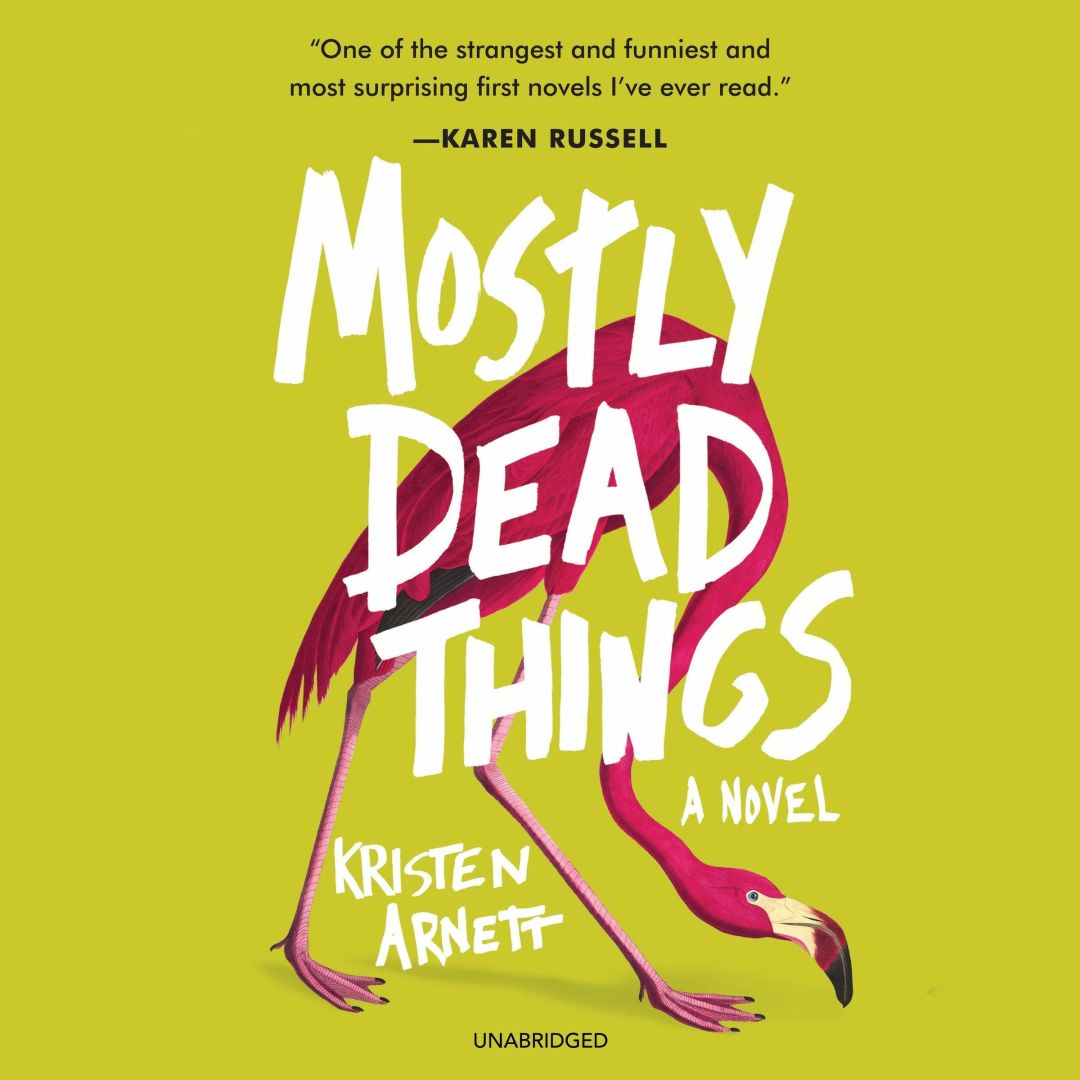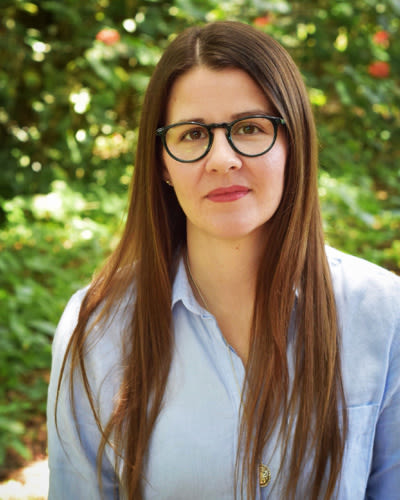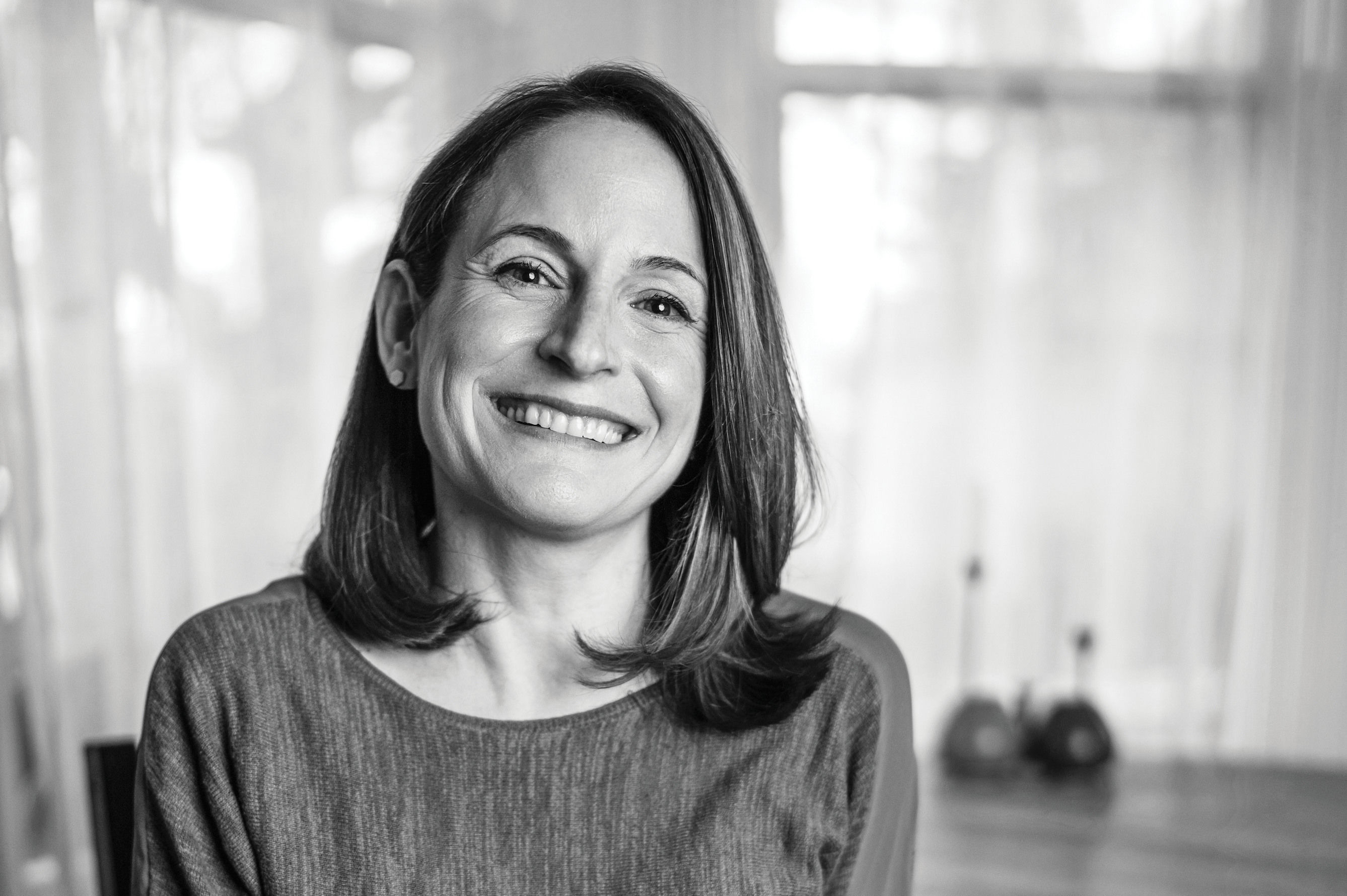Kristen Arnett Talks Dark Humor, Taxidermy, and Queer Narratives

Image: Courtesy Kristen Arnett
Kristen Arnett has had a banner year. The Taco Bell-loving librarian, essayist, and Twitter master released her first novel this summer, Mostly Dead Things, from local publisher Tin House. The debut novel follows a family of taxidermists living in central Florida and reeling from the effects of a suicide—a darker tone than usual for the author who famously held her first book launch, the fiction short collection Felt in the Jaw, at her beloved local 7-Eleven. But the unusual family—complete with love triangles, erotic sculptures, and arson—finds a way to burrow into your heart, and Arnett has landed herself on the New York Times bestseller list and been heaped with praise everywhere from Buzzfeed to the Washington Post. She brings her wit, and her twisted characters, to Powell's on Monday, July 22, where she'll be joined in conversation by local author Karen Russell.
It's so fun to watch this novel come out and explode. I’m sure you didn’t expect this.

Author Kristen Arnett
Image: Courtesy Kristen Arnett
I absolutely did not. I keep saying I feel lucky, but I did put a lot of hard work into this. But honestly I just feel really good that such a broad audience has connected with what I was trying to write. The heart of what I wanted this book to be was a very specific kind of queer book. Meaning I wanted it to be a book that was gay, but about the day-to-day lived experience of the person. And I wanted that to be executed in a way that as a reader I would want it to read. The other thing that was extremely important to me was to write about Florida and how I experience central Florida. So the fact that such a broad array of people, of different ages, living in different places, and people who aren’t queer [have been] able to read the intimacy into it and experience grief or loss has been the best, hugest part of this. All the other stuff is incredible and I can't believe it most of the time, but that stuff just makes me so glad because it means the book is doing what I hoped it would do. Which was, you know, writing about those things in a way that felt meaningful to me.
On its surface, you don't expect a book about a family of taxidermists dealing with suicide in Florida to be something that resonates with so many people. But it unwrapped in these layers that felt so familiar. And I didn’t realize until I was nearly finished with the book that I haven’t read another book that zooms in on that day-to-day experience of a queer person, as opposed to being about the big moments.
As a queer reader or just as a queer woman, that's something I'm always looking for. I long to read that. It's something I want to read because I think coming-out narratives are very important, but also it's just one moment. I mean, people have to come out over and over again, but it's this one moment. The whole lived experience of a queer person's life is a coming-out narrative. And also sometimes it's a trauma point and then occasionally I wonder who that coming-out narrative is being written for. Because sometimes it's written for queer people, but sometimes the way it's written might be for a straight reader to experience what that looks like. That's not what I'm looking to read or write. I'm really looking to see, what does it mean to just go to work and be a gay person living that kind of experience? So it was really important to me to write, because that's what I care about—like, OK, a woman who's gay in a weird relationship with her family. Weird not because of her being gay, but just because they have a lot of other shit going on.
Right, as all families do. I came to know you through Twitter, where you are known for being very light and fun. Was it refreshing for you to write something darker, or was that difficult for you? The tone was unexpected for me me.
I think about all of these different platforms as different types of writing. I know Twitter's not technically writing, but for me it almost feels like a way to test out stand-up routines or a joke. I can see how many different ways I can tell a joke or what makes the most impact. How long can I stay interested in something if I write it on there? So it feels like a writing platform, and I'm writing different material there than I would in the novel—or even if I am writing a short story versus an essay. All of those are very different kinds of writing for me. I think if I was writing the same way all the time, I'd just get really bored. I am a person that gets bored very easily. I'm always working on a lot of things at once or reading a bunch of things at once, because if I sit around too long I get bored. So it's interesting to me to write stylistically differentl,y because then I'm exploring bigger things and asking bigger questions.
My hope for the book is, yes, it's a darker kind of book, but it also has humor in it. I was very interested in thinking about humor exists alongside grief and loss and death—because it does, it lives in there, too. I mean, there's a reason why dark humor is something people gravitate towards. They are such powerful elements, loss and grief; they need the flip side of the coin. People are so full of multiple feelings at any given moment—even if you're experiencing loss or grief, you're usually still experiencing all those other feelings, too, which includes being happy or things seeming funny, even if it’s funny in a terrible way.
Absolutely. And we need that release during those times.
You have to have those moments of levity. If they're not in there, then how do people live? It was important to me to have those breaks in there, but also because they just exist together. And it was interesting to try out ways that things can be funny, because I think a lot of different things are funny. First of all, I think taxidermy is inherently funny and how people utilize it can be really funny. And then I think that Jessa as a character is hilarious, because she's such a control freak all the time and she kind of plays a straight man. Pun intended, since I know she's gay, but she plays the straight man. So a lot of the humor is because she doesn't have a sense of humor about anything. I think that's very funny when there's a person who is like that, and they're in situations where they're not realizing that there is a bigger joke. Whenever there is a kind of character who is so aggressively controlling about stuff, that's kind of hilarious to me. So it was experimenting [with] the ways in which humor can work in different styles. On Twitter, I'll do just the dumb, absurdist, stupid jokes. I love puns, but I also think the opposite side of that is funny. too. Like, I think it's funny to watch a character be [intense], and then things are happening in a funny way around them. They don't even recognize it because they're so obtuse. That's funny, too.
Kristen Arnett
7:30 p.m. Mon, July 22, Powell's City of Books, FRE




